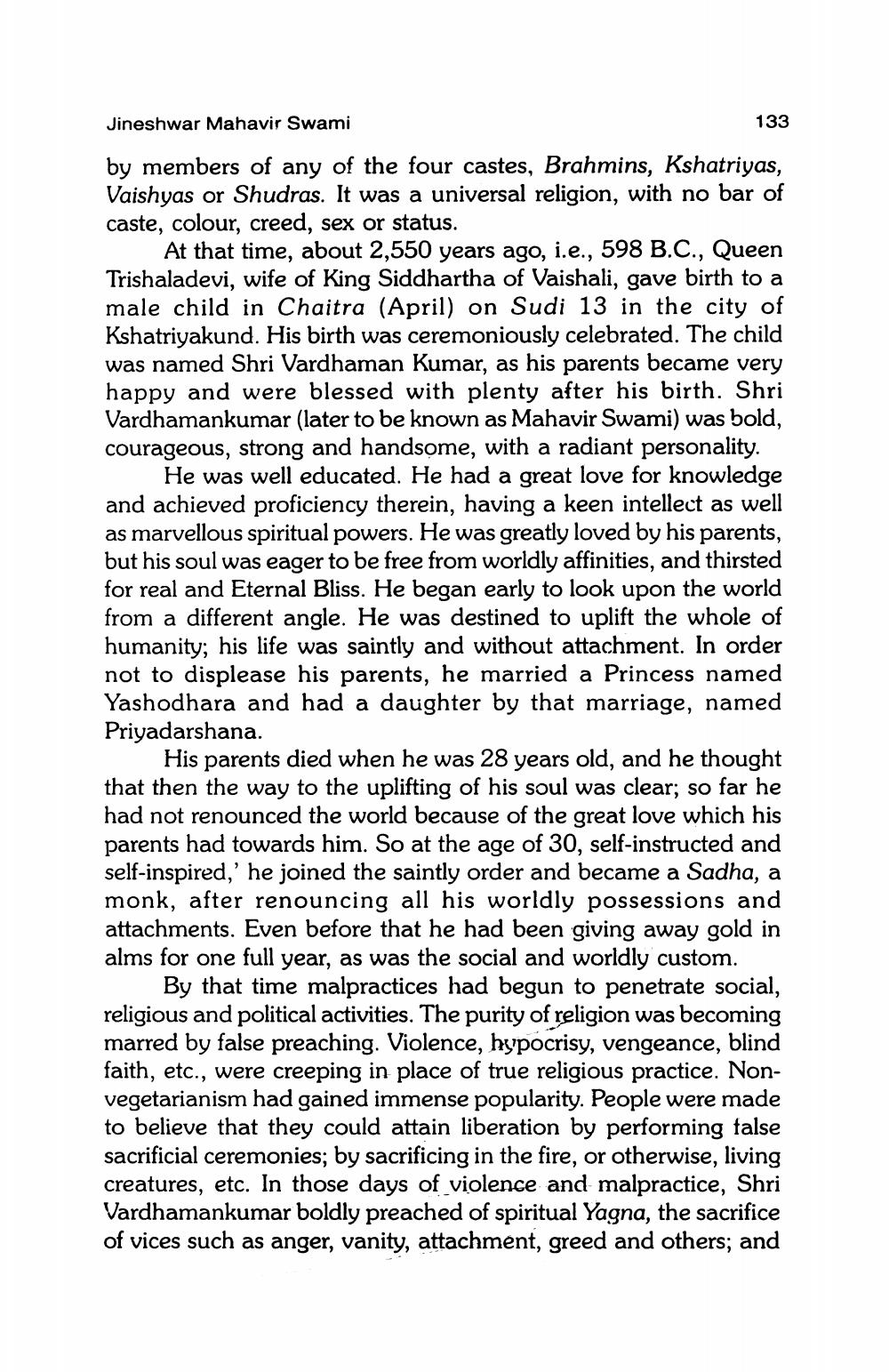________________
Jineshwar Mahavir Swami
133
by members of any of the four castes, Brahmins, Kshatriyas, Vaishyas or Shudras. It was a universal religion, with no bar of caste, colour, creed, sex or status.
At that time, about 2,550 years ago, i.e., 598 B.C., Queen Trishaladevi, wife of King Siddhartha of Vaishali, gave birth to a male child in Chaitra (April) on Sudi 13 in the city of Kshatriyakund. His birth was ceremoniously celebrated. The child was named Shri Vardhaman Kumar, as his parents became very happy and were blessed with plenty after his birth. Shri Vardhamankumar (later to be known as Mahavir Swami) was bold, courageous, strong and handsome, with a radiant personality.
He was well educated. He had a great love for knowledge and achieved proficiency therein, having a keen intellect as well as marvellous spiritual powers. He was greatly loved by his parents, but his soul was eager to be free from worldly affinities, and thirsted for real and Eternal Bliss. He began early to look upon the world from a different angle. He was destined to uplift the whole of humanity; his life was saintly and without attachment. In order not to displease his parents, he married a Princess named Yashodhara and had a daughter by that marriage, named Priyadarshana.
His parents died when he was 28 years old, and he thought that then the way to the uplifting of his soul was clear; so far he had not renounced the world because of the great love which his parents had towards him. So at the age of 30, self-instructed and self-inspired,' he joined the saintly order and became a Sadha, a monk, after renouncing all his worldly possessions and attachments. Even before that he had been giving away gold in alms for one full year, as was the social and worldly custom.
By that time malpractices had begun to penetrate social, religious and political activities. The purity of religion was becoming marred by false preaching. Violence, hypocrisy, vengeance, blind faith, etc., were creeping in place of true religious practice. Nonvegetarianism had gained immense popularity. People were made to believe that they could attain liberation by performing false sacrificial ceremonies; by sacrificing in the fire, or otherwise, living creatures, etc. In those days of violence and malpractice, Shri Vardhamankumar boldly preached of spiritual Yagna, the sacrifice of vices such as anger, vanity, attachment, greed and others; and




